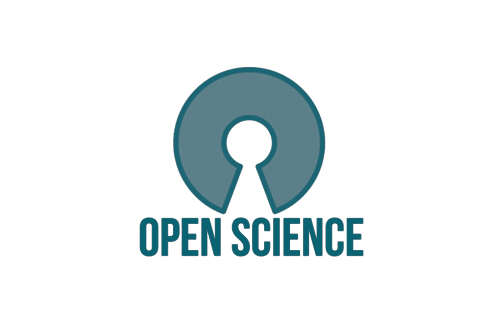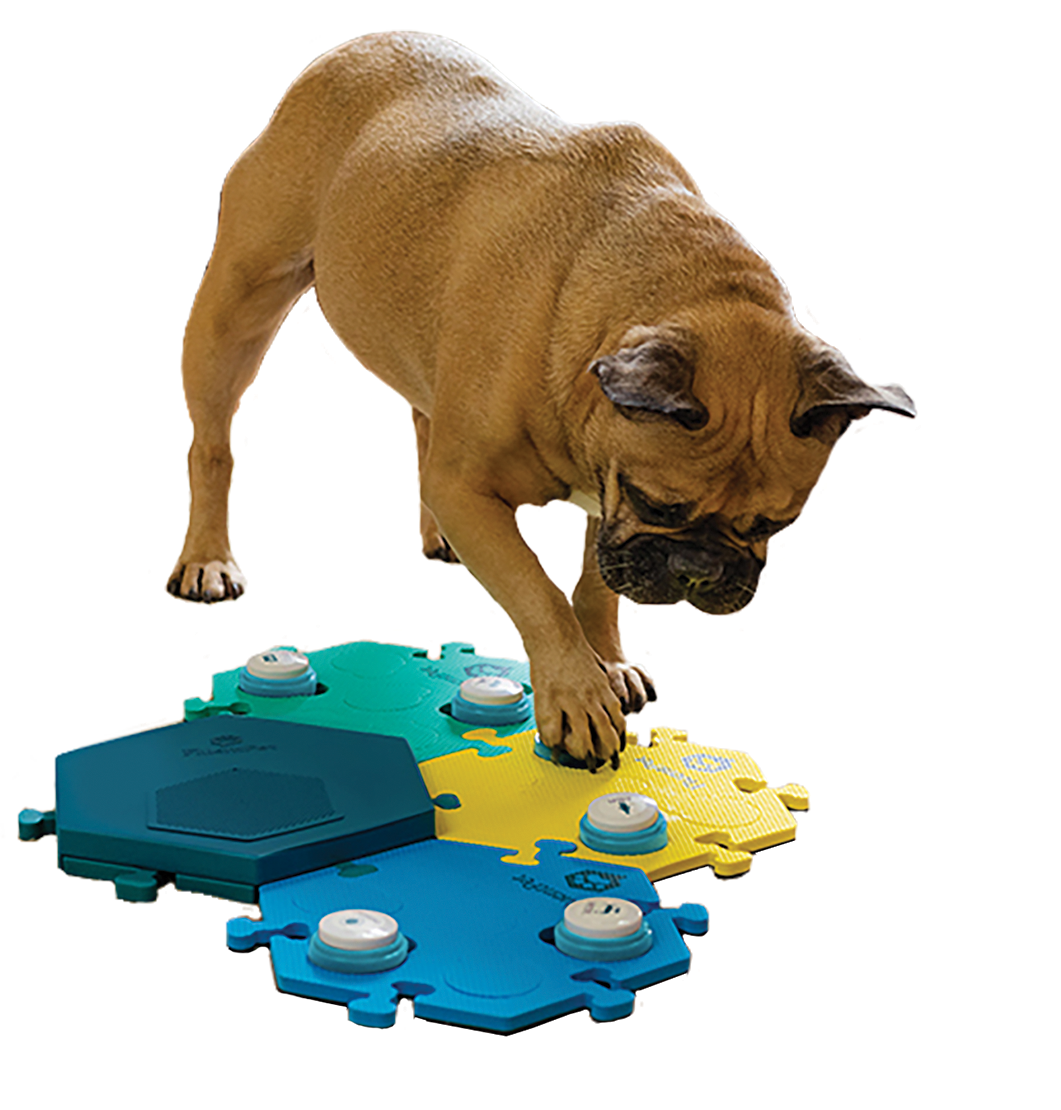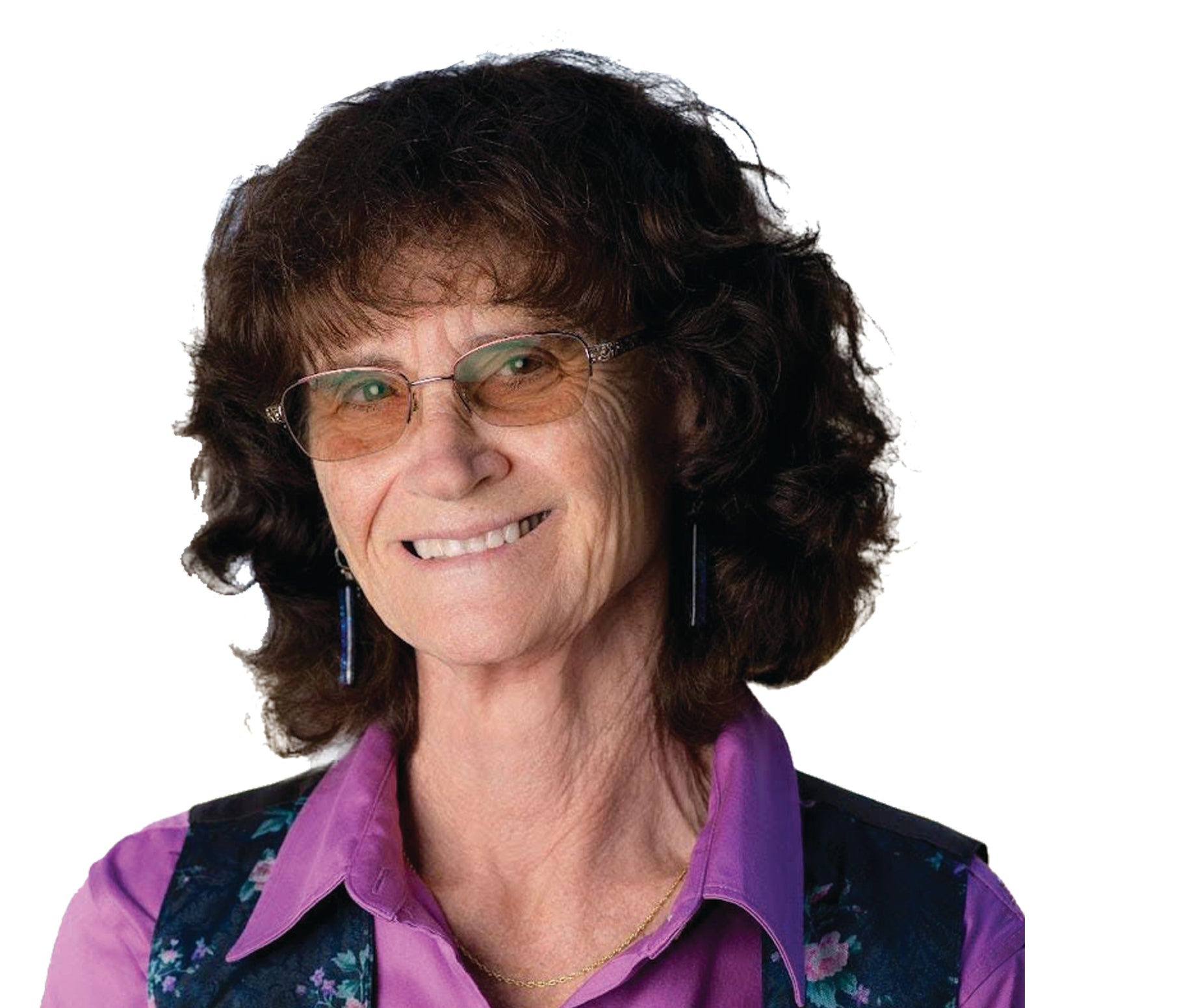
Advancing Transparency and Trust
We established the FluentPet Scientific Integrity Review Board (SIRB) in 2023 to ensure that FluentPet maintains the highest standards of integrity in its support of scientific research.
In collaboration with the SIRB, FluentPet has commmitted to a set of Research Integrity and Open Science Principles, and developed a Conflict of Interest Policy to which all associated parties must agree.

Advancing Transparency and Trust
We established the FluentPet Scientific Integrity Review Board (SIRB) in 2023 to ensure that FluentPet maintains the highest standards of integrity in its support of scientific research.
In collaboration with the SIRB, FluentPet has commmitted to a set of Research Integrity and Open Science Principles, and developed a Conflict of Interest Policy to which all associated parties must agree.
Our Origins in Science
The company behind FluentPet was started by PhDs and graduate students in cognitive science and neuroscience from the University of California at San Diego (UCSD). In 2019, when we saw what Christina Hunger was able to do with her dog, Stella, it was clear that button-based communication was incredibly exciting and needed to be studied thoughtfully.
As a science-driven company, we believe we have an obligation to record and share what we are learning, both for the advancement of this new practice and for the benefit of science in general. We support the principles of Open Science through transparency, data sharing, and community engagement.
We engage with the community by creating tools such as buttons and HexTiles to make it easier for people to teach their dogs and cats how to use buttons. We also started the How.TheyCanTalk Research initiative to record, and eventually publish, what the data shows when people teach dogs and cats to use buttons.

Our Origins in Science
The company behind FluentPet was started by PhDs and graduate students in cognitive science and neuroscience from the University of California at San Diego (UCSD). In 2019, when we saw what Christina Hunger was able to do with her dog, Stella, it was clear that button-based communication was incredibly exciting and needed to be studied thoughtfully.
As a science-driven company, we believe we have an obligation to record and share what we are learning, both for the advancement of this new practice and for the benefit of science in general. We support the principles of Open Science through transparency, data sharing, and community engagement.
We engage with the community by creating tools such as buttons and HexTiles to make it easier for people to teach their dogs and cats how to use buttons. We also started the How.TheyCanTalk Research initiative to record, and eventually publish, what the data shows when people teach dogs and cats to use buttons.

TRANSPARENT AND ETHICAL RESEARCH PRACTICES
FluentPet Scientific Integrity Review Board
The purpose of the FluentPet SIRB is to ensure that, with respect to scientific research, FluentPet acts ethically and transparently. The SIRB is a standing, independent, self-governing advisory body of members committed to two-year terms, and their sole priority is ensuring that scientific work associated with FluentPet adheres to best scientific practices and is free from bias.

Marta Kutas, PhD, SIRB Chair
Marta Kutas, PhD, is a Distinguished Professor, emerita of cognitive science and neurosciences. She served as Chair of cognitive science (2007-2019), held the Chancellor’s Associates Endowed Chair, and was in parallel to her position in the department of cognitive sciences an Adjunct Professor of neurosciences at the UCSD. She was also director of the Center for Research in Language (2007-2022) and was the Principal Investigator for the Kutas Cognitive Electrophysiology Lab at UCSD.
Kutas is known for discovering the N400, an event-related brain potential (ERP) elicited by any potentially conceptually meaningful stimuli, together with her postdoctoral mentor Professor Steven Hillyard, jumpstarting the field of psychophysiology of language processing, more generally the cognitive neuroscience of language.
Kutas received a BA from Oberlin College and a PhD from the University of Illinois, Urbana-Champaign. She spent two years as a postdoctoral researcher with Hillyard and Galambos and 10 years on “soft money” first as a Research Neuroscientist and then as a Professor In Residence in the Department of Neurosciences at UCSD.
She has been a member of the Department of Cognitive Science at UCSD since its founding in 1988. She received awards for Distinguished Career Contributions from the Society for Psychophysiological Research and the Cognitive Neuroscience Society. Kutas received an honorary doctorate from Oberlin College and from Radboud University, Nijmegen, The Netherlands. In 2018, Kutas was elected to the American Academy of Arts and Sciences. In 2023, Kutas was awarded a Revelle Medal, the highest award given by chancellor to emeriti, whose careers show a commitment to thinking further, solving problems, and shaping the future in ways only possible only at UCSD.

Marta Kutas, PhD, SIRB Chair
Marta Kutas, PhD, is a Distinguished Professor, emerita of cognitive science and neurosciences. She served as Chair of cognitive science (2007-2019), held the Chancellor’s Associates Endowed Chair, and was in parallel to her position in the department of cognitive sciences an Adjunct Professor of neurosciences at the UCSD. She was also director of the Center for Research in Language (2007-2022) and was the Principal Investigator for the Kutas Cognitive Electrophysiology Lab at UCSD.
Kutas is known for discovering the N400, an event-related brain potential (ERP) elicited by any potentially conceptually meaningful stimuli, together with her postdoctoral mentor Professor Steven Hillyard, jumpstarting the field of psychophysiology of language processing, more generally the cognitive neuroscience of language.
Kutas received a BA from Oberlin College and a PhD from the University of Illinois, Urbana-Champaign. She spent two years as a postdoctoral researcher with Hillyard and Galambos and 10 years on “soft money” first as a Research Neuroscientist and then as a Professor In Residence in the Department of Neurosciences at UCSD.
She has been a member of the Department of Cognitive Science at UCSD since its founding in 1988. She received awards for Distinguished Career Contributions from the Society for Psychophysiological Research and the Cognitive Neuroscience Society. Kutas received an honorary doctorate from Oberlin College and from Radboud University, Nijmegen, The Netherlands. In 2018, Kutas was elected to the American Academy of Arts and Sciences. In 2023, Kutas was awarded a Revelle Medal, the highest award given by chancellor to emeriti, whose careers show a commitment to thinking further, solving problems, and shaping the future in ways only possible only at UCSD.

Terrence Sejnowski, PhD, SIRB Member
Terrence Sejnowski, PhD, is the Francis Crick Chair at the Salk Institute for Biological Studies, where he is the Professor and Laboratory Head of the Computational Neurobiology Laboratory and Director of the Crick-Jacobs center for theoretical and computational biology. He is known for performing pioneering research in neural networks and computational neuroscience.
In addition, Sejnowski is Professor of Biological Sciences and Adjunct Professor in the the University of California, San Diego departments of neurosciences, psychology, cognitive science, computer science, and engineering. He is the co-director of the UCSD Institute for Neural Computation.
Sejnowski received his PhD in physics from Princeton University. He was a postdoctoral fellow at Princeton University and the Harvard Medical School. Later, he served on the faculty of Johns Hopkins University and was a Wiersma Visiting Professor of Neurobiology and a Sherman Fairchild Distinguished Scholar at Caltech.
The long-range goal of Sejnowski's research is to understand the computational resources of brains and to build linking principles from brain to behavior using computational models. He has been a member of the National Academy of Sciences since his election in 2010.

Terrence Sejnowski, PhD, SIRB Member
Terrence Sejnowski, PhD, is the Francis Crick Chair at the Salk Institute for Biological Studies, where he is the Professor and Laboratory Head of the Computational Neurobiology Laboratory and Director of the Crick-Jacobs center for theoretical and computational biology. He is known for performing pioneering research in neural networks and computational neuroscience.
In addition, Sejnowski is Professor of Biological Sciences and Adjunct Professor in the the University of California, San Diego departments of neurosciences, psychology, cognitive science, computer science, and engineering. He is the co-director of the UCSD Institute for Neural Computation.
Sejnowski received his PhD in physics from Princeton University. He was a postdoctoral fellow at Princeton University and the Harvard Medical School. Later, he served on the faculty of Johns Hopkins University and was a Wiersma Visiting Professor of Neurobiology and a Sherman Fairchild Distinguished Scholar at Caltech.
The long-range goal of Sejnowski's research is to understand the computational resources of brains and to build linking principles from brain to behavior using computational models. He has been a member of the National Academy of Sciences since his election in 2010.

Gary Landsberg, DVM, DACVB, DECAWBM, SIRB Member
Gary Landsberg, DVM, DACVB, DECAWBM, received his Doctor of Veterinary Medicine degree from Ontario Veterinary College in 1976 and is a diplomate of both the American College of Veterinary Behaviorists (ACVB) and the European College of Animal Welfare and Behavioural Medicine (ECAWBM).
Dr. Landsberg was founder and co-owner of three primary care practices, as well as a behavior referral speciality practice in the Greater Toronto Area. He is currently the Veterinary Scientific Director at CanCog Inc, Head of Fear Free Research and a consultant and advisor in animal health. Landsberg is a frequent speaker for veterinarians and staff, both in North America and internationally. He has authored and edited more than 100 research papers, articles, and book chapters, and is the editor and co-author of Behavior Problems of the Dog and Cat, now in its 4th edition and Canine and Feline Dementia.
Dr. Landsberg has received awards for his service to the veterinary profession from the American Animal Hospital Association and the Western Veterinary Conference.

Gary Landsberg, DVM, DACVB, DECAWBM, SIRB Member
Gary Landsberg, DVM, DACVB, DECAWBM, received his Doctor of Veterinary Medicine degree from Ontario Veterinary College in 1976 and is a diplomate of both the American College of Veterinary Behaviorists (ACVB) and the European College of Animal Welfare and Behavioural Medicine (ECAWBM).
Dr. Landsberg was founder and co-owner of three primary care practices, as well as a behavior referral speciality practice in the Greater Toronto Area. He is currently the Veterinary Scientific Director at CanCog Inc, Head of Fear Free Research and a consultant and advisor in animal health. Landsberg is a frequent speaker for veterinarians and staff, both in North America and internationally. He has authored and edited more than 100 research papers, articles, and book chapters, and is the editor and co-author of Behavior Problems of the Dog and Cat, now in its 4th edition and Canine and Feline Dementia.
Dr. Landsberg has received awards for his service to the veterinary profession from the American Animal Hospital Association and the Western Veterinary Conference.

Leo Trottier, SIRB Member and FluentPet Founder and CEO
Leo Trottier is a unique blend of cognitive scientist, software engineer, product designer, and entrepreneur. He is founder and CEO of CleverPet, a startup that uses smart hardware to teach dogs and cats automatically through advanced cognitive and behavioral science techniques.
Trottier is an alumnus of Stanford’s StartX, San Diego's EvoNexus, and Techstars (the Qualcomm Robotics Accelerator) and earned an M.S. in Cognitive Science from UC San Diego. He holds an Honours B.Sc. in Cognitive Science and A.I. from the University of Toronto, and started CleverPet in 2014 as a PhD candidate at UC San Diego. Before CleverPet, Leo ran Scholarpedia, Wikipedia’s academic equivalent, where he worked with Nobel Laureates to "wikify scholarly canons."

Leo Trottier, SIRB Member and FluentPet Founder and CEO
Leo Trottier is a unique blend of cognitive scientist, software engineer, product designer, and entrepreneur. He is founder and CEO of CleverPet, a startup that uses smart hardware to teach dogs and cats automatically through advanced cognitive and behavioral science techniques.
Trottier is an alumnus of Stanford’s StartX, San Diego's EvoNexus, and Techstars (the Qualcomm Robotics Accelerator) and earned an M.S. in Cognitive Science from UC San Diego. He holds an Honours B.Sc. in Cognitive Science and A.I. from the University of Toronto, and started CleverPet in 2014 as a PhD candidate at UC San Diego. Before CleverPet, Leo ran Scholarpedia, Wikipedia’s academic equivalent, where he worked with Nobel Laureates to "wikify scholarly canons."

